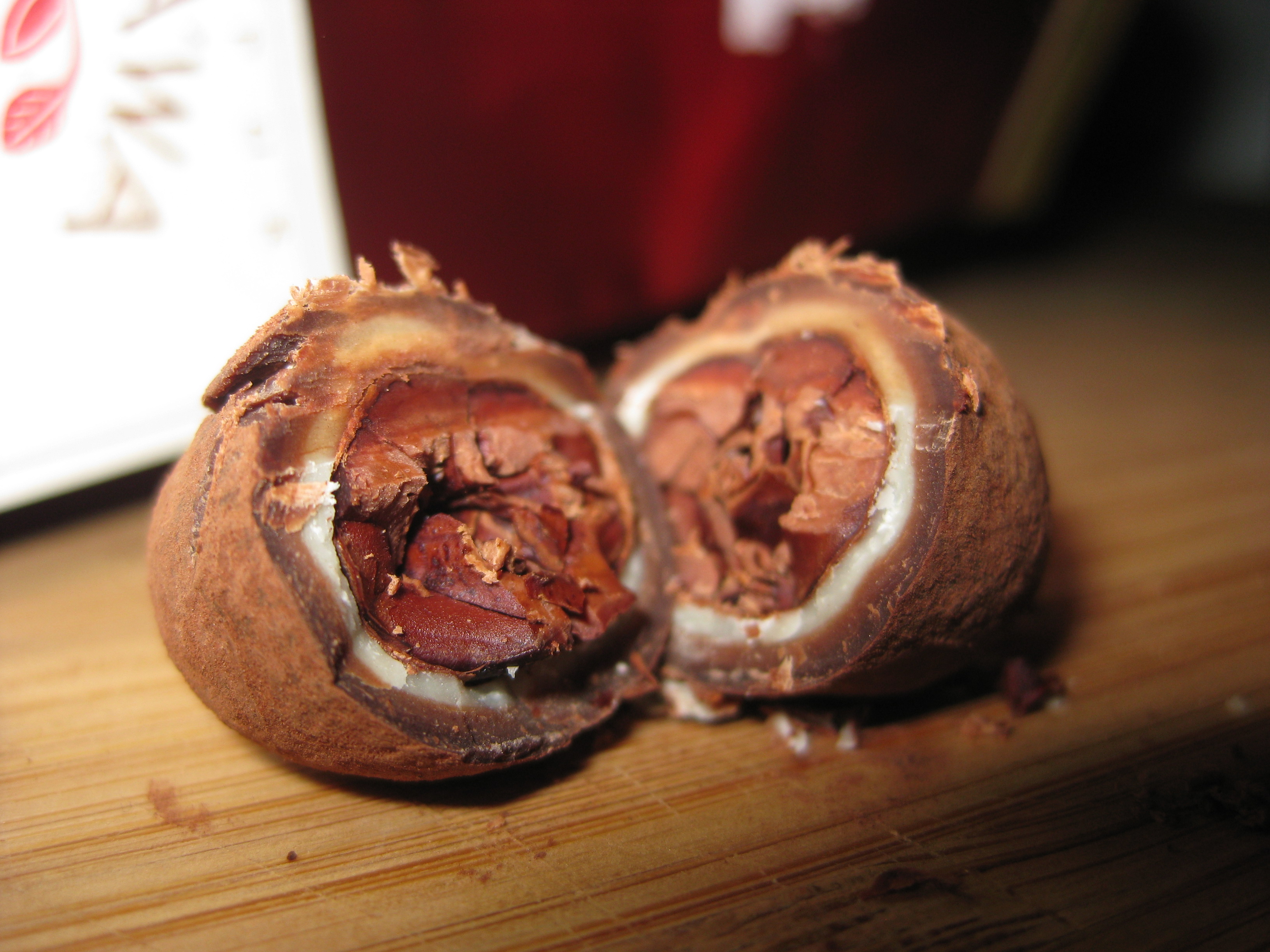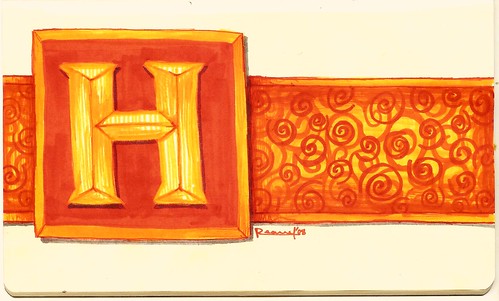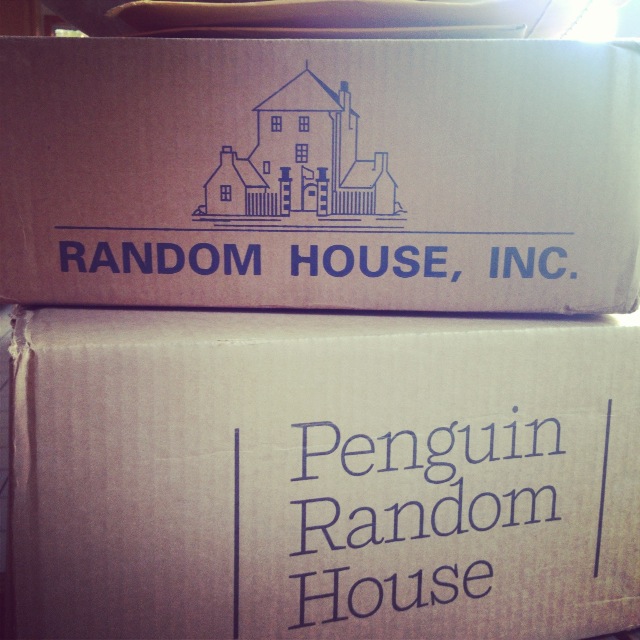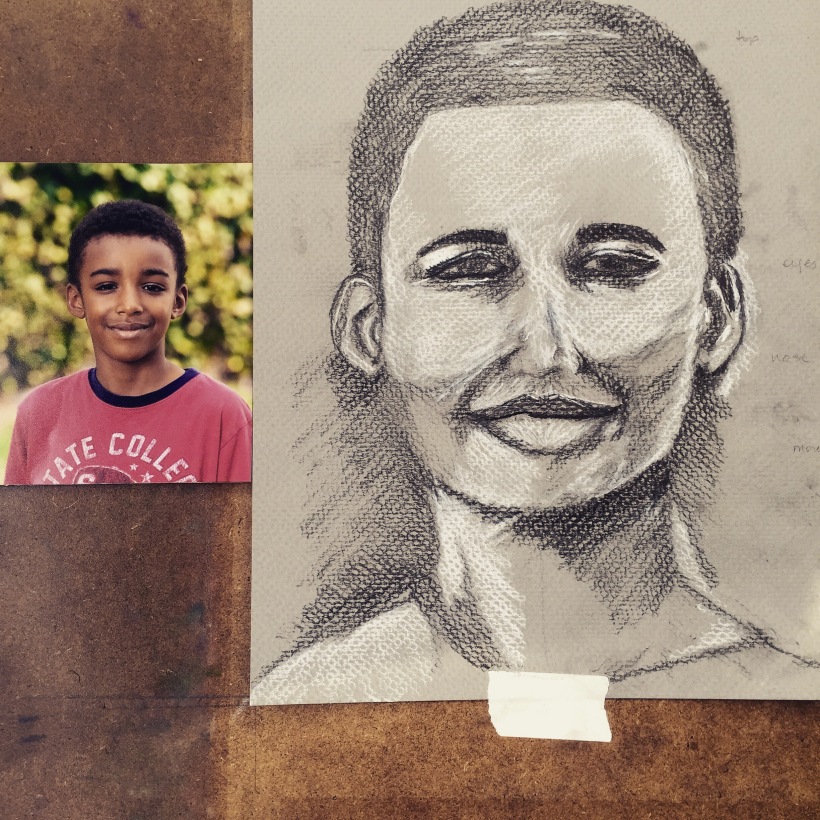Two police officers stood in front of the school. They seemed to be doing something close to nothing, chatting with a parent. The parent seemed to know them, but the conversation also appeared…strained. I know this parent; her body language suggested discomfort, annoyance, and a little anger.
I was walking with my 12-year-old son and his friend, both black boys, as I passed by the officers and the mom. One of the officers briefly looked at me, but beyond that none of the three acknowledged me. The situation didn’t seem to warrant my intervention, although I was a bit concerned about why police officers were outside of this majority black private school. But I needed to go about my day, so I ignored them and continued to think about what I was going to buy at the supermarket to feed the six hungry children that I was taking home and caring for.
I was lost in my thoughts (“pizza? or maybe hotdogs and chicken? They’ll want chips and popsicles too . . .”) when I hear my son’s friend say, “… well if you aren’t doing anything wrong, you don’t need to worry.” Then my son says, “Yeah . . . and you should look like you aren’t doing anything wrong.”
Their words immediately put my supermarket daydreams to an end. Wait…what? How did we get here? How did we get to the point where these two black boys living in Chicago — the same Chicago that killed Laquan MacDonald, the same Chicago where racial segregation is palpable — are parroting such myths as “the only people who should be worried about the police are criminals?”
How can they see the world this way in the same Chicago where the Obama-era Justice Department found that the Chicago Police Department “engage in a pattern or practice of using force, including deadly force, that is unreasonable” and unconstitutional; “does not investigate the majority of cases it is required by law to investigate;” “does not provide officers or supervisors with adequate training and does not encourage or facilitate adequate supervision of officers in the field”?
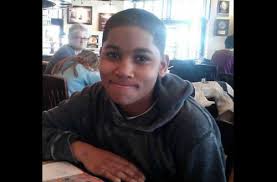
How are they so unaware and detached from the fact that their very existence is threatening to so many, as most poignantly shown in the police murder of Tamir Rice, a little black 12-year-old just like them.
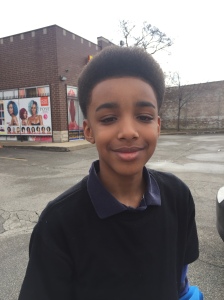
What did I do wrong, a scholar and a lawyer that writes and teaches about race and racism and children every single day, what did I do wrong that I haven’t prepared my child for the reality, given the odds, he is soon to confront? Haven’t we had “The Talk“?
As common in Black families as the conversations about the “birds and the bees,” The Talk explains to black children the reality of being black. The Talk tells black children that people will treat them differently for the simple fact of the hue of their skin, the shape of their nose, and the texture of their hair. The Talk tells little black boys that even when they are innocent, they are guilty. Even when they are children, they are being perceived as adults. Even when they are “just playing,” they are being watched, judged, profiled. That even if they are doing nothing wrong, even if they look like they are doing nothing wrong, it may not matter.
Just a week ago in my seminar, I showed my students a video of police officers rolling up on a group of boys and pulling their gun. The boys were walking home from playing basketball. As the police car rolled up to them, the cops jumped out and immediately told the boys to get on the ground. One boys seems to be shocked, and doesn’t immediately get down. GET DOWN ON THE GROUND! SHOW ME YOUR HANDS! A boy starts to cry, wailing as his face presses against the concrete. The boys shout – What did we do?? What did we do? The crying boy’s brothers tells him to stop crying, it’s going to be okay. I don’t want to die. Unbelievably, the police officer, gun still drawn, softens his voice, telling the boys it’s going to be okay.
The video fast forwards to the children’s parents confronting the police. As the police attempt to justify their actions, saying they didn’t know if the boys with basketballs in their arms had guns, one mother yells and cries at her child. “THIS IS WHY I DON’T LET Y’ALL GO NOWHERE!” As the boy protests, says that he did nothing wrong, his mother: “IT DON’T MATTER! IT DON’T MATTER!”
I weep every time I watch that video, as I imagine my son on that ground, face pressed into the sidewalk, crying. But then I realize why even if we’ve had The Talk, he’s never quite heard The Talk, why it doesn’t feel real to him: I don’t allow him out of my sight.
These two boys are sheltered, for the exact reasons articulated by this mother: because it doesn’t matter that they are 12-years-old, that they still like Pokemon, that hide-and-seek and tag and infection and four square are still a part of their play repertoire. They go nowhere without us, their parents. Not to school, not walking around the block, not wandering in a store, not to the park. Because I don’t want them to be the victim of a hashtag: #GoingToSchoolWhileBlack. #WalkingAroundTheBlockWhileBlack. #GroceryShoppingWhileBlack. I don’t want anyone to be SayingTheirName.
But now I can’t have him not understanding the reality of his world. That so many little boys just like him are pulled to the side by the police for no reason other than living and being a kid #WhileBlack. That he needs to be overly compliant with police officers even when he’s done nothing wrong. That he needs to press his face into the concrete if they tell him to do so. That crying won’t help, that only doing exactly what they say might save his life.
I hesitated before saying those words. Because just for another 30 seconds, one minute, five minutes, I wanted him to remain that little boy, believing in the ultimate justness of the world, that men and women in blue are always only wanting to help him and not hurt him. I wanted him to remain my baby, the beautiful black boy that I loved before he was even born, now 12-years-old but still a boy. Not a man. A boy.
But I did it because it needed to be done. And afterwards, I cried.
